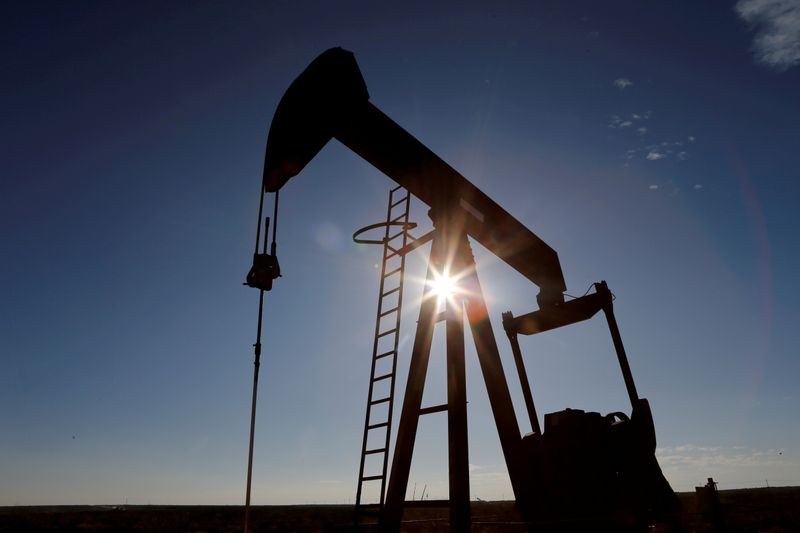By Yuka Obayashi
TOKYO (Reuters) - Oil prices rallied again on Thursday to hit 13-month highs as concerns that a rare cold snap in Texas could disrupt U.S. crude output for days or even weeks prompted fresh buying.
Brent crude was up 56 cents, or 0.9%, at $64.90 a barrel at 0744 GMT, after rising to $65.62 earlier in the session, its highest since Jan. 20, 2020.
U.S. West Texas Intermediate (WTI) crude futures gained 46 cents, or 0.8%, to $61.60 a barrel, after earlier rising to $62.26, the highest since Jan. 8, 2020.
Both benchmarks rose about $1 on Wednesday and have gained about 6% since their close last Thursday.
Texas' freeze entered a sixth day on Thursday, as the largest energy-producing state in the United States grappled with massive refining outages and oil and gas shut-ins that rippled beyond its borders into neighbouring Mexico.
Roughly 1 million barrels per day (bpd) of crude production has been shut, according to Wood Mackenzie analysts, and it could be weeks before it is fully restored.
"Oil prices got a boost again from expectations that the disruptions of Texas oil producers and refiners due to the cold storm could last for a while," said Hiroyuki Kikukawa, general manager of research at Nissan (OTC:NSANY) Securities.
"With hopes of fresh U.S. economic stimulus and wider rollouts of the COVID-19 vaccine, oil prices are expected to stay on the bullish trend," he said, predicting that WTI could test a key $65 level.
In addition, a larger-than-anticipated draw in the U.S. crude oil inventories added to supply concerns, said Chiyoki Chen, chief analyst at Sunward Trading.
U.S. crude oil stocks fell by 5.8 million barrels in the week to Feb. 12 to about 468 million barrels, compared with analysts' expectations for a draw of 2.4 million barrels, American Petroleum Institute data showed.
U.S. Energy Information Administration (EIA) oil inventory data will be released later on Thursday, delayed by a day after a holiday on Monday.
Oil's rally in recent months has also been supported by a tightening of global supplies, due largely to production cuts from the Organization of the Petroleum Exporting Countries (OPEC) and allied producers in the OPEC+ grouping that includes Russia.
OPEC+ sources told Reuters the group's producers are likely to ease curbs on supply after April given the recovery in prices.
